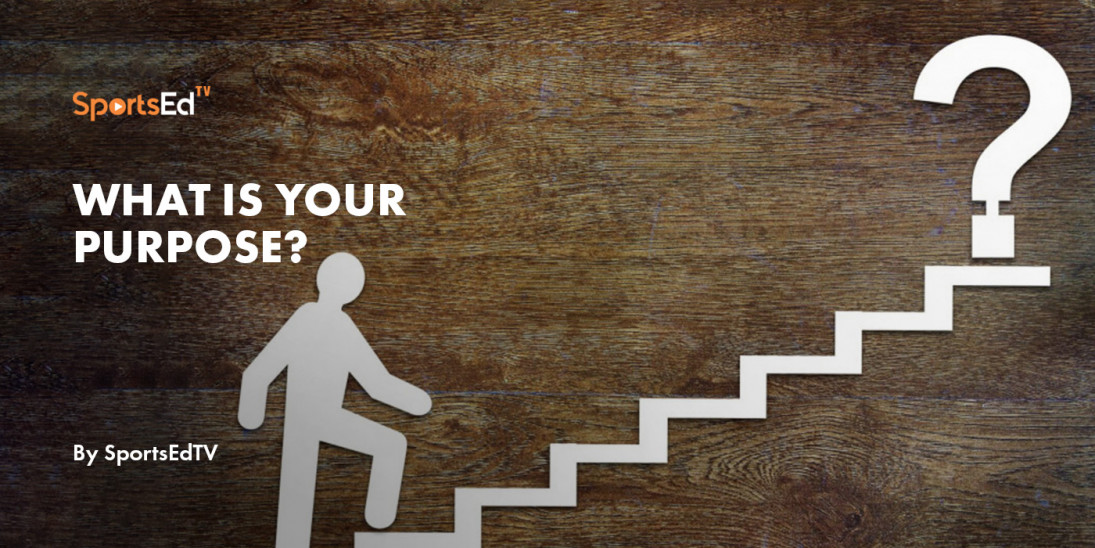Mental Health
Welcome and thanks for visiting...

Is Stress a Friend or Foe?

The veins in my head were bulging out with every beat, signaling the frantic pace with which my heart was trying to prepare my body for what would come.
How did I cope with the stress?
This was how it all started:
I was matched against a legendary Japanese opponent in front of his home crowd, being drafted last minute as a replacement for another pro fighter who chickened out. It was my time to step it up. Once more.
The bass and cheers of his thousands of fans awoke my belly and whispered: Get ready.
What was the chance of victory?
On paper: ZERO. He had 35 mixed martial arts fights, used to compete in the Legendary Pride. I only got 2-week advance notice. He was a specialist in the ground game. What was worse, his favorite weapon (his nasty leg locks), was quite literally my Achilles heel. Because after years of repetitive strain from kicking 3-6 hours a day, my achilles tendon was chronically inflamed and a mere touch triggered immense pain. As a last minute replacement, the Japanese flew me in only 2 days in advance, which resulted in 4 hours sleep in a 48 hour window. You can imagine how I entered the Tokyo Dome in a fuzzy daze.
Why go through all this?
This was who I was: A warrior that would not back down for any challenge. But just as with other high-profile fights where the chances were stacked against me, I outperformed myself. I loved the power of those moments, the intensity, and the sense of aliveness it brought with them.
I thrived on so-called stress. I didn't despise it. I LOVED, and still LOVE It!
I want you to start loving it too.
I know. There is an abundance of scientific and media articles that warn us of the risky side-effects of chronic stress: From migraines to choking under pressure, from marital conflict to occupational errors and from heart attacks to impotence, PME, and anorgasmia. Is that all a lie?
NO!
Chronic stress WILL kill you...but only if you believe it will.
Because a growing body of scientific knowledge from Cambridge, Harvard and other Ivy League institutions, is demonstrating that the situation is inherently more complex than the "The Mismatch" story we have been told in the hope to protect us. Sadly enough, these messages seem to be creating a self-fulfilling prophecy and trigger the stress-related issues they are intended to prevent.
The “Mismatch” theory states that our bodies' nervous systems evolved to survive a dog-eat-dog world and that our system is maladapted to our current lives.
Suppose you are one of your far ancestors: You are dancing in your cave around the fire and all of a sudden a saber tooth tiger roars in your ear. Adrenaline and cortisol shoot up and push you into taking action in order to protect your tribe and survive together. The pleasure hormones, endorphins, and dopamine motivate you to keep on going until the big cat is turned into a loin cloth or you and your tribe are a mere memory. Rather adaptive, isn’t it?
But, according to the mismatch theory, our bodies are too dumb do not know the difference between a deadly threat and the threat of a deadline. If you believe in this paradigm, whenever we are working in a very competitive environment, our bodies are subjected to whole days of feeling as if we are in danger of losing our lives. Have you ever heard this kind of reasoning? Do you believe it?
I don’t. Because it fails to acknowledge the wisdom and adaptability of human nature. In my eyes, nature’s natural selection tends to create elegant and flexible coping systems. Think about incredible adaptations such as the wings of birds that allow them to fly, the changing colors of the Chameleon or the ability of camels to store water in their bulges.
Now, suppose for a moment that our nervous systems are indeed mismatched with the recent “safe” environment many live in. Are all the people that are working in high-stress occupations like elite sports, physicians, first responders and nurses doomed to suffer as a consequence of their occupation?
Are we doomed to live a life full of burnouts, illness, and painful interactions with others?
Absolutely not!
After his initial demonstrations of the negative effects of stress, endocrinologist Hans Seyle started to nuance his perspective beyond the mismatch theory. He coined the term “Eustress” for the type of positive stress that is related to a challenge that you believe you can handle. In other words, you believe that you can handle the situation.
Under the right circumstances, this effect can even lead to the absolutely enjoyable mental state that Mihaly Csikszentmihalyi defined as “FLOW”, and Abraham Maslow as “Peak Experience”.
When your ability to cope is matched with the challenges in your environment, time tends to fade, everything flows effortlessly, and you feel connected with the present moment and a sense of wholeness with existence. According to this school, it pays to try to organize our lives and work to maximize challenges. However, we do still need to avoid threats.
And what are threats? They are dangers that we think we cannot handle or solve and are related to the negative side effects of stress.
Imagine this situation.

You have a job interview and require a pen and paper for it, but they are taken away just before you start. You face a panel of assessors that seems to be selected for their poker faces. No matter what and how you say it, all you get is the sound of the note-taking pens and emotionless eyes dissecting everything you do.
When it is finally feedback time, you can already see their pulled up eyebrows telling you: “You failed”, without even uttering a word. As you expected, what follows is a long list of remarks describing the shortcomings of your performance. Can you imagine? Not the most fun you ever had, is it? In other words, you faced a threat, a situation where you had no power to or failed to face the challenge head-on. Unlike Flow, this is not a positive experience.
And that is exactly what the participants of Stanford professor Dr. Alia Crum’s “mock interview experiment” experienced. And when the researchers analyzed the stress hormones in their blood, high levels of adrenaline and cortisol were found. And like many interested in performance and personal growth already know, chronically elevated levels of these hormones are related with diminished health, performance and wellbeing
Now, what do you think happened to the other participants? Yes, they got positive feedback. The assessors were a whole lot friendlier and after the fact, the respondents were told how good their presentation had gone. Not surprisingly, these participants felt great after the session. And once again, their blood work reflected this. Together with elevated but diminishing levels of adrenaline and cortisol, a more wholesome kind of neurotransmitters flooded their bodies: the anabolic compounds DHEA and Neural Growth Factor that are well known stimulators of recovery, growth and a thriving body. In other words, this challenge group seemed to have experienced “Eustress”.
So the solution to stress-related problems seems to be rather simple: Organise your life to minimize distress (threat) and maximize eustress (challenge).
But this presents us with a problem because it is nearly impossible to control our environment and life in such a way that we rarely or never face threats. And even if we would be able to live most of our lives without a threat, if we then finally encounter the unavoidable, we will get hit much harder because we never learned to handle the intensity that goes with facing experiences that are outside of our control. Take for example an unexpected move that your opponent does, a new strategy that they implement. Think about moments where people in your support team or family unexpectedly died. Or just the high number of incidences of injuries that plague most elite level athletes.
So are we then completely helpless when this happens?
Not quite. We can use the power of our mindset to thrive regardless of whether we are facing challenges or threats. Indeed, the way in which we think about stress influences how it affects our health and wellbeing.
For example, prominent Stanford professor Dr. Alia Crum and her colleagues have repeatedly demonstrated that when you believe that stress is good (aka have the stress-is-enhancing mindset) you live longer, healthier and happier than anybody else. That includes those with low stress levels, no matter if they believe that stress is enhancing or debilitating (aka `bad for you’).
These researchers didn’t only use longitudinal measures to check the long term effects of subject’s mindsets on stress, but they also investigated the effects of mindset on what happened at an endocrine (hormonal) level in the bodies of participants.
Let us go back to the mock job interview experiment of before because what is even more interesting than the mere presence of threat or challenge systems, is the mediating influence of the participant’s mindsets.
The Stanford research team investigated this by priming the mindset that stress was good (aka stress-is-enhancing mindset) or that stress was bad (aka stress-is-debilitating) by showing participants a short video that explained the benefits OR the dangers of stress. In subjects that were shown the stress-is-debilitating video, the differences between their psychological and physiological response between challenge and threat conditions were more pronounced than without the priming. But when participants saw the stress-is-enhancing video, no matter if they faced a threat or a challenge, their bodies and minds reacted with the challenge response.
This solid experiment offers biopsychological supports to Henry Ford’s quote - “Whether you think you can, or you think you can't – you're right,”
But enough theory, let us see how you can start implementing the stress-is-enhancing mindset too.
With my private clients, I work with hypnosis and evidence-based psychological strategies that are adapted to their particular situation. But because not everybody is in the position to work with me 1-on-1, if you take the following steps, you are well on your way to turn stress into your competitive advantage too.
Turn stress into your competitive advantage (SICA) Exercise
STEP I - AWARENESS OF INITIAL REACTION
First, think back to moments where you were stressed in the past. Luckily, most of us have a handful of situations that really get us riled up.
Go back in your memories and think about what the first sign was that you were getting stressed.
When you become aware of your first indications of getting stressed and what triggers you, you are ready for the next step.
STEP II - EMBRACE THE POSITIVE EFFECTS OF STRESS
Think back about moments where stress helped you to perform, relate and live better. When were your energy levels, focus, persistence and drive stimulated by the stress in your body. Once you have discovered the positive effects in your past, it is key to start looking for the beneficial effects of stress in the moment.
To help you do that, every time you are stressed, ask yourself: How will this stress help me to focus, to push through and to guide this situation to where I want it to go?
STEP III - FIND THE MEANING OF STRESS
Think back about your best moments in life. Were they completely stress free? For me and most of my clients, very often stress and challenge seems to have been a main driver behind the pleasure and growth potential of those situations.
It is your body’s way of telling you: Pay attention! This is important to you.
So, think back and ask yourself:
- Why do I stress? Why is this important to me? This question is a great way to see how your stress response is there for a reason: to help you fulfill your needs, protect your boundaries and adapt optimally to what is happening around you.
- Is this important because I choose it or because somebody gave it to me? This question highlights the difference of the rules that we have adopted from others (we find it important because we adopted other people’s rules without questioning, often when we were very young) VERSUS the values that we choose deliberately (This can only be done here in the moment).
This part can help you to re-discover and rewire the way you are. In other words, stress is a powerful window into the rules, values, boundaries and needs you live with.
STEP IV - REPROGRAM YOUR ACTIONS
- Now it is time to study what you DID in response to the experience of stress. Ask yourself.
- How did I (re)act once I was stressed?
- What were the short term benefits of this reaction (eg. bit of relief after lashing out to annoying journalist or opponent)
- What were the long term benefits of this reaction (eg. I got more press because I created a scene on the weigh ins)
- What were the short term disadvantages of this reaction? (eg. I got slapped in the face, I got disqualified)
- What were the long term disadvantages of this reaction (eg. shrunken fanbase, family members threatened, suspension, fine, guilt, shame,...)
2. Now ask yourself, how would I IDEALLY choose to act in this situation?
-
- What would be a better/ideal way to act in this situation?
- What would be the short term benefits of this reaction (eg. clapping of crowd because of your demonstration of sportsmanship and class, grateful media and fans,..)
- What would be the long term benefits of this reaction (eg. being elected as best soccer player of the year, sponsorships from Nike or other big brands, invitations to talk shows, pride, gratefulness, a growing and loving fanbase,...)
- What would be the short term disadvantages be of this reaction (eg. Less attention to you in the press conference, you feel as if you didn’t hold on to yourself,..)
As you can see, what we think is a good thing might not always give us the best return on investment. For professional athletes, we can never forget that we are not just athletes but foremost entertainers.
So do this analysis, talk with your trainers, agents, and business manager to devise a strategy of chosen actions that will create the most beneficial situation for you, not only psychologically but also financially.
STEP V - PLAN AND IMAGINE ACTING OUT YOUR CHOSEN STRATEGY
In other words, you decide with your team what your best plan of action would be if these situations pop up again.
For example, the next time you notice stress come up before a championship, you stop obsessing about the stress you feel in your body, trying to force yourself to calm down with a shot of alcohol or forceful but counterproductive “I am calm” affirmations. Because when your heart is pounding in your temples, you can’t fool your subconscious mind.
Instead, you can decide to acknowledge that stress is here. And it is here to help you. Tell yourself: Yes, my body and mind is getting ready. Take a deep breath. Hold it. Squeeze your fists, your buttocks and pelvic floor and bite down. Feel the tension; Then exhale, let it go and enjoy easing into the electrifying sensations that stress creates in your body.
Then you can use declarations that don’t go against reality.
‘This is what it is about’.
‘I love this’.
‘I am ready, I am alert, explosive and will keep pushing forward’.
Using self-talk IS powerful IF and only if it is built on what is real in the moment. Forget the pop psychological notion that you can fool your subconscious mind that you are super calm while your body is pulsating with adrenaline and cortisol.
The key to using mindsets optimally is to restructure your interpretations of what is going on and what you will do with the experience.
STEP VI - ACT OUT YOUR CHOSEN STRATEGY IN REAL LIFE
STEP VII - REVIEW, CALIBRATE AND ADAPT YOUR CHOSEN STRATEGY TO GET THE MOST OUT OF FUTURE MOMENTS OF MEANING (AKA STRESSFUL MOMENTS)
When you apply this consequently, you will start to reach increasingly higher levels of performance AND enjoyment of the process.
It is time to stress and perform with pleasure.





